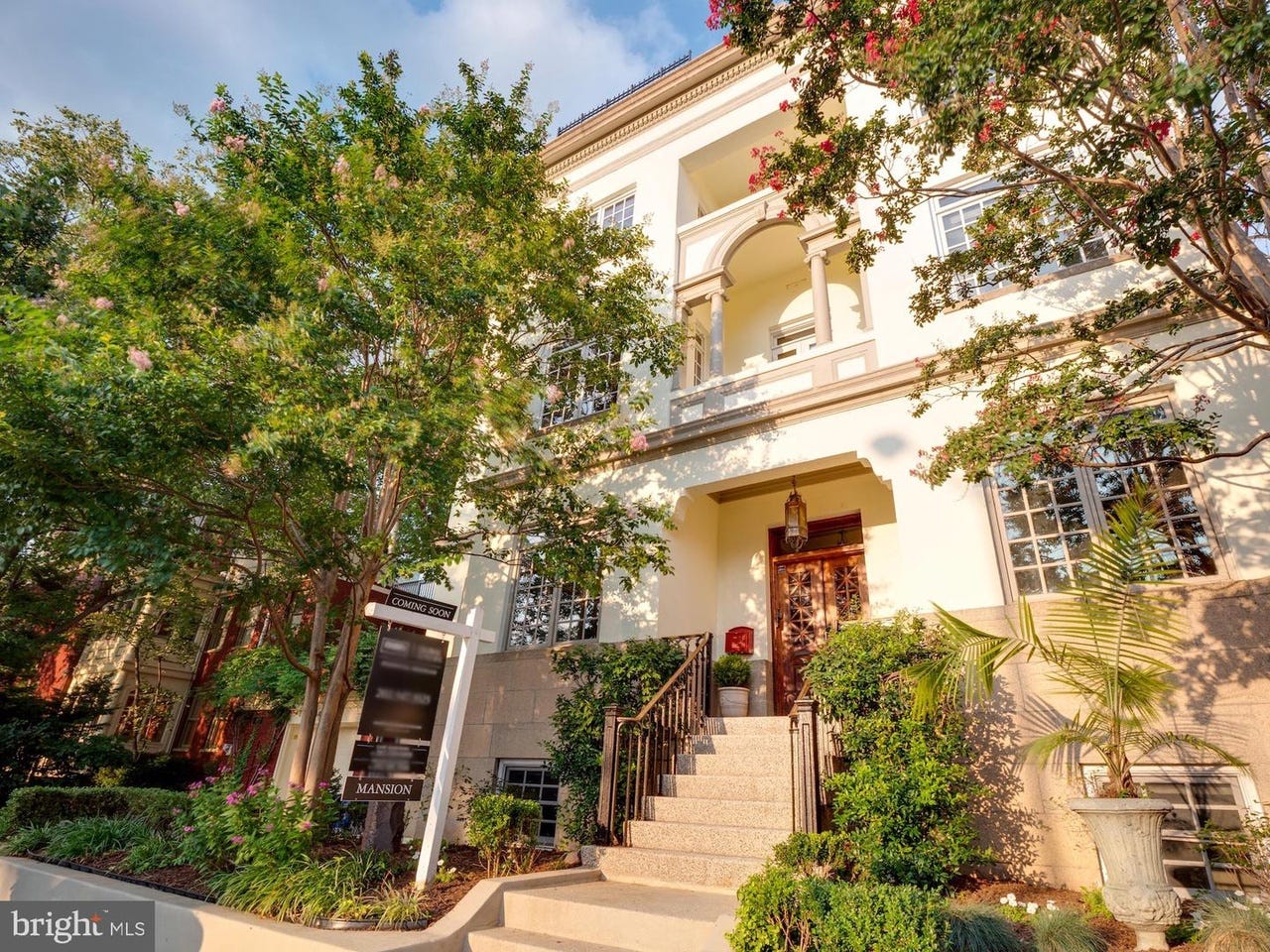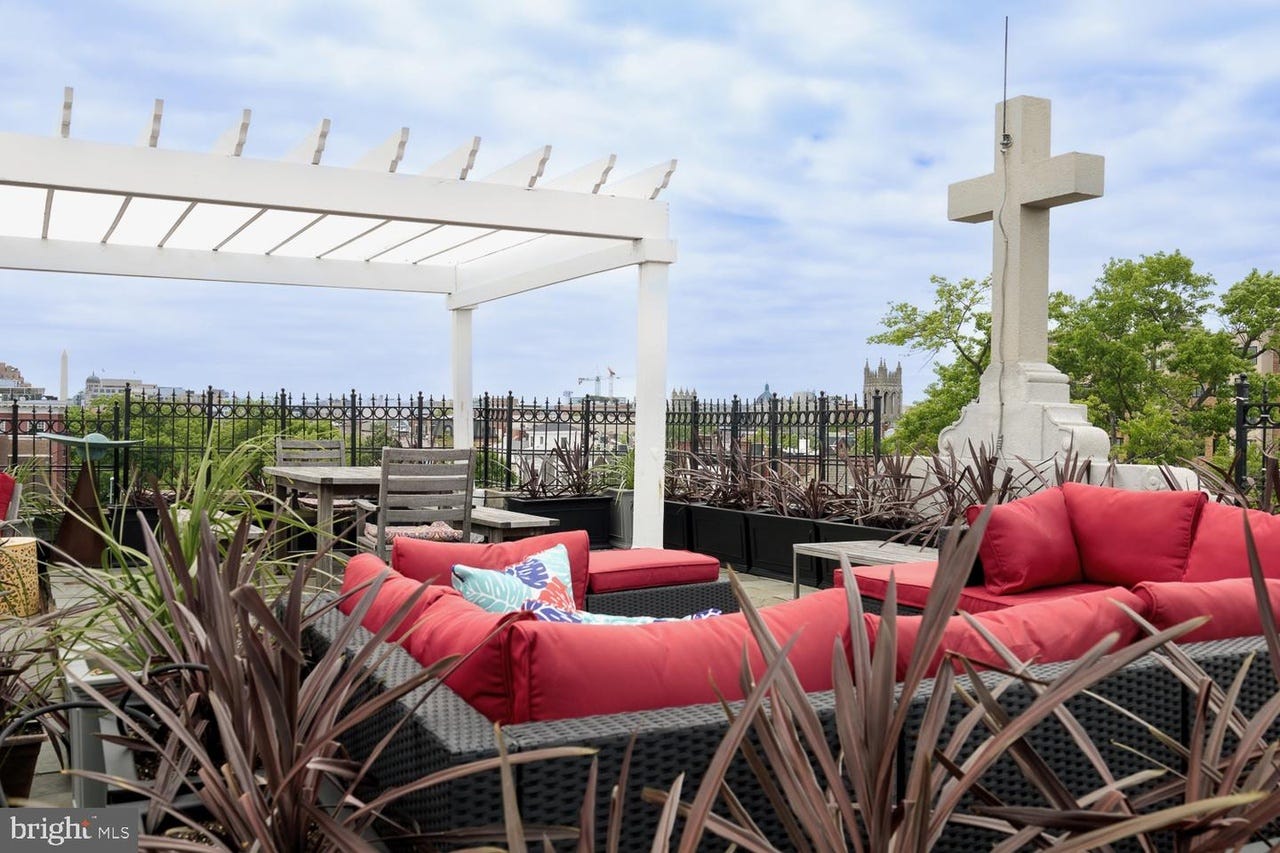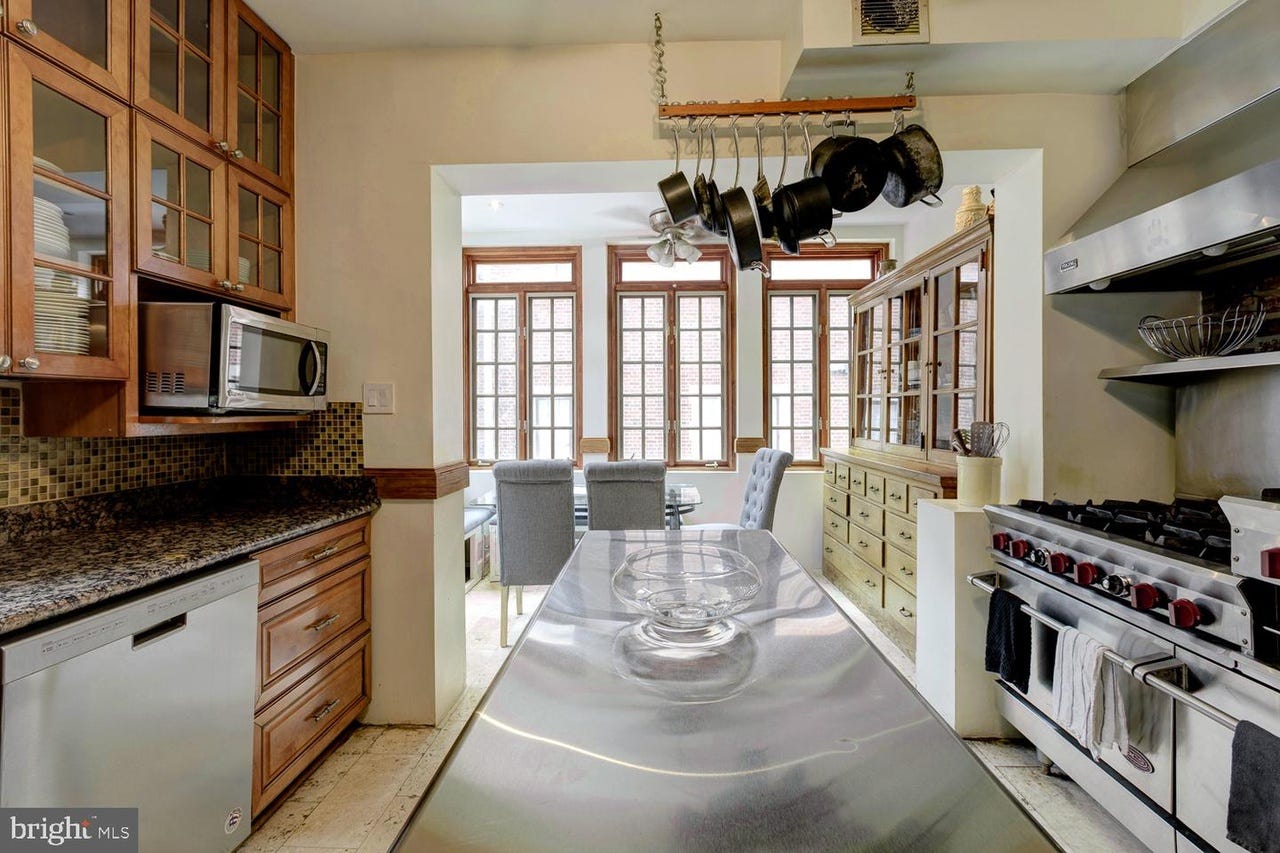Case Study: Workshop House
An intentional community in progress
Editor’s note: This is a reader-submitted case study from Lauren Hoffman, part of an ongoing series of deep dives on coliving spaces. To see others, visit the Supernuclear directory. If you want to contribute a case study of your community, awesome! Please find guidelines for submission in this post.
A lot of people have a certain image in their mind when they think of a coliving house: perhaps a college co-op that throws a lot of parties and has a fridge full of poorly marked leftovers. But it’s also common to see people who have lived in coliving houses ‘level up’ over time - from Phil and Kristen starting RGB and then Radish, to Lincoln living in a college co-op, then the chaotic and wonderful Clarendon, and now Workshop. Read on for details of how DC’s most expensive Airbnb has transitioned into a home for people with ‘quiet ambition to make the world better’.
Date founded: 2022
Location: Washington DC
Rented or owned: Owned
Amount of space: 7736 sq ft, with 9 bedrooms (8 full time, plus a guest room)
Governance: Do-ocracy crossed with benevolent dictatorship by the founder
Origins
Workshop is the brainchild of its founder Lincoln Quirk, who moved to Washington DC in 2021 after having formative coliving experiences elsewhere, in Boston’s Clarendon House and in the Brown Techhouse in college.
Lincoln prefers this socially engaged version of adult life to the atomized suburban nuclear family house he was raised in, and sought to recreate the best of these coliving communities. He wanted to create a space that would be full of collisions and shared projects, but that could avoid some of the challenges he had observed, such as a propensity for fratty social cultures and less-than-clean common spaces.
He had found a small but thriving culture of intentional coliving in DC and its suburbs, with a cluster of houses that regularly collaborated on events. Lincoln was interested in contributing to that culture by seeding another house, but with a vision of something a bit bigger. He understood that it would be more expensive to set up and operate upmarket of the average group house, but bet on the belief that the unique value would attract others who were interested in sharing both those costs and their benefits.
He worked with a realtor to find a home with multiple bedrooms and abundant hosting space. He landed on the building that would become Workshop, a former rectory built in 1947 to house the priests of St. Augustine’s, the first Black Catholic parish in DC, which still stands a few blocks away. He acquired the property in mid-2022 through an LLC that would enable residents to buy in to shared ownership, and residents began moving in November of 2022.
It’s hard to overstate how unique the home is. Because it was built as a rectory, it has 9 bedrooms, most of which have their own bathrooms and unusual privacy. The floors and walls are concrete, creating remarkable soundproofing: a party can be taking place on the first floor, and you wouldn’t know it from the bedrooms on the second floor. There is a rooftop, adorned with an original eight-foot cross, that acts as outdoor hosting space. Previous owners, including a bachelor known for hosting fabulous parties and eventually managing it as an Airbnb, made updates to the house like installing new kitchen appliances and finishing the basement into a separate apartment.
Inner workings
Workshop is owned through an LLC, which has a jumbo mortgage on the property. While Lincoln is currently the only owner, he designed the ownership structure such that others can join as co-owners. By virtue of his individual ownership, the structure operates somewhere between a do-ocracy and benevolent dictatorship, depending on the impact and cost of a decision.
For cultural and logistical questions, the residents have designed consensus-based systems. For example, when making major decisions like approving new residents or even minor decisions like approving short-term houseguests, if everyone agrees or no one strongly disagrees, a person is approved. If even one resident strongly disagrees, they have veto power (which has been invoked for decisions like hosting a guest with a pet or specific public events). To prevent bottlenecks, if no one objects within 24 hours of a minor decision being presented, it gets approved. If a resident wants to buy something - like supplies for a house event or a piece of furniture or equipment - they apply to the LLC for funding (which today means asking Lincoln for approval). Lincoln attempts to defer non-urgent decisions or leave them up to the residents to create a culture of shared ownership.
Rent ranges from $1800-$2200, depending on the size of the room and whether it has a private bathroom. That price point is substantially less than a studio or modest one-bedroom in the same neighborhood. Cumulative rents are not yet quite covering the ownership costs, so the house is currently losing money - in large part because they have chosen to retain a guest room instead of renting the house out at full capacity. If every room was full, rents would fully cover the mortgage and operating costs. For the present, Lincoln has generously decided to subsidize Workshop and operate in the red in order to seed the project and ensure that new residents are brought in only when they are excellent cultural additions to the home. He admits that this will not be sustainable long-term, and that filling all of the bedrooms and increasing rents (a modest market-tracking amount) will need to take the place of his subsidies in the coming couple of years.
By both selection and self-selection, Workshop residents are all engaged in pro-social, or even altruistic, professions. They are nonprofit founders, foundation program managers, B corp startup founders, social workers, and the like - all full of quiet ambition to make the world better. This creates a really special environment: over dinner, conversation trends toward the global and philosophical, and people are excited to both talk about the work they do and derive meaning from, and to relax and take a break from it together.
It’s worth noting that residents are very happy there: only one room has turned over in over two years.
Daily Life
While some daily and weekly routines are intentionally laissez faire, others may become more communalized and structured over time. There are weekly house dinners on Mondays, but outside of that the residents don’t cook and eat collectively with enough frequency to justify shared groceries. They hire a regular cleaner covered by the residents with minor supplementation from the LLC. They use Splitwise to share communal purchases like toilet paper.
One resident acts as operations manager in exchange for discounted rent. She shepherds decisions, ensuring that they are voted on within reasonable deadlines, and supervises repairs and improvements.
Where this system can break down is when physical features of the house break down. Ultimately, capital improvements remain Lincoln’s sole financial responsibility, and shared ownership of the work necessary for repairs - coordinating with contractors, scheduling access to different parts of the house - can still create collective action problems and delays. An especially acute example that residents bring up was when a burst pipe required major plumbing work throughout the house, causing the water to be turned off during daytime hours for two weeks.
A meaningful part of Workshop’s culture is how it engages with non-residents. The members wanted to foster an online, asynchronous community, and therefore use Zulip, an open-source alternative to Slack, for intra-house communication and for messaging with the broader community. Community members use it to propose events and outings and check in on what’s going on remotely. (For full disclosure, I am a non-resident extended community member at Workshop.)
The culture of the house has increasingly been shaped by the events it hosts, which either align with the spirit of ambitious altruism that characterizes the residents, or are purely social, community-building affairs. Residents convene writing workshops and hackathons. Many of their larger scale gatherings touch on tech policy and democracy preservation, as well as on themes of effective altruism and animal welfare. They have started holding sing-alongs every couple of months, and pepper the calendar with large parties, including a formal attire casino night, a vegan winter solstice dinner, and an annual July 4th party that makes great use of the rooftop’s views to the Capitol.
They also rent or loan out the cozy ground floor hosting space to outside groups for value-aligned events, like nonprofit staff retreats, friends’ book launch parties, and local political campaign kickoffs.
Lessons Learned
It is challenging to transition from individual ownership to shared ownership: having others buy into an investment later on requires a remarkable level of alignment. Nevertheless, a dedicated anchoring owner or lessee who then subleases rooms to other residents can catalyze an enduring community.
Founders/anchor residents may feel pressure to plan for every possible scenario or proactively set up complex governance structures and rules. This is not always necessary: allowing later joiners to participate in evolving co-creation instills a sense of buy-in and ownership.
Originally, residents were excited about renting out the ground floor open space fairly regularly (e.g., for a nonprofit’s quarterly board meetings). Over time, they found that this was more disruptive than additive, and have limited outside rental or space loans only to those which overlap heavily with the interests of the existing residents and community. Outside groups are now welcome to rent the space for aligned, recurring events up to twice a year, but the house is much more interested in hosting one-off, pilot events and gatherings.
Early on, Lincoln envisioned populating a room with shop tools, to create a literal maker space and workshop within Workshop House. Though he is still interested in that, it’s been deprioritized as hosting events and convening new groups of people have taken precedence.
Future State / Ideal Steady State
Today, Workshop House is a maker space to experiment with the cardboard version of new ideas, or to build the MVP version of new communities and groups of people - to the delight of their extended community.
Over time, Lincoln hopes to see a mix of co-owners (ideally 4-5 total) and long-term renters jointly caring for the space.
Lincoln and his coresidents envision the community being big and vibrant, with lots of folks who don’t live there visiting and hanging out there regularly. They are building a place that feels welcoming, supportive, and familial, in a way that can hopefully accommodate members of all ages, including parents with young children.
Thanks Lauren for writing this up! Suggested further reading:
Curious about living near friends or coliving? Find more case studies, how tos, and reflections at Supernuclear: a guide to coliving. Sign up to be notified as future articles are published here:
Subscribed
You can find the directory of the articles we’ve written and plan to write here.










